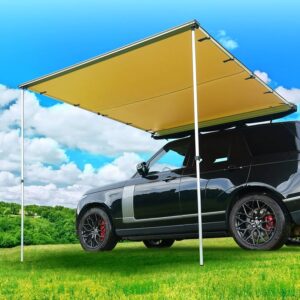7 Things to Maintain an RV Battery for Beginners

One of the most important facts to know when living in an RV is that your battery is the single most important source of power. A great number of RVs come loaded with 12v batteries. However, you can, and it is highly advised, that you buy additional units, depending on your energy needs.
There are several types of RV batteries that require, more or less, the same type of maintenance. Without this, you will find yourself incurring replacement costs regularly. RV batteries are lead acid batteries. They have a number of cells contained in series. One cell produces 2.1v. The following tips can help you prolong the life of your RV battery.
#1. Check electrolyte levels regularly
A majority of RV batteries have electrolytes. These electrolytes ensure that the battery works optimally. After the battery has been used for some time, the liquid becomes drained. It is for this reason that the liquid has to be replaced. It is highly advised to use distilled water. This is because other types of water can cause severe damage to the battery, potentially damaging it.
#2. Ensure the Battery Does Not Freeze
A battery can freeze if it is left idle for a very long period. Not only can a frozen battery not charge, it can explode when charged. Ensure that your RV battery is stored properly to prevent it from freezing. To get more good ideas, I’ll recommend you to consider a visit for https://rvside.com/best-rv-deep-cycle-battery-reviews/
#3. Use the Battery Appropriately
To ensure that your RV battery stays efficient for long, it is important to use the right kind of battery for the right purpose. There are different kinds of RV batteries meant for different purposes. For instance, the starter battery is meant for starting your RV engine only. On the other hand, the deep cycle battery is designed to provide regular power for some time. Knowing how to use the right battery for the right purpose keeps it working for longer. A good marine battery works to give you a combination of the other two batteries in one package.
#4. Extremely Hot Temperatures Harm Your Battery
Just as very cold conditions can cause the RV battery to freeze and become useless, extreme heat can also easily damage your battery. High temperatures melt certain important components of the battery and render it unusable. Extreme heat also affects your electrolyte. For this reason, make sure that your RV battery is not left exposed to direct sunlight or kept in a place where it can get too hot and, subsequently, become damaged.
#5. Ensure the Charge Does not Fall Below 50% Capacity
Since an RV battery is constantly in use, it is not always going to be fully charged all the time. It is up to you to make sure that the battery energy does not go below a minimum threshold of 50%. The reason for this is that when the battery regularly goes below the 50% capacity, it becomes weakened and damaged and may not be able to hold any charge in the end. For this reason, before you start any trip, ensure that the battery is fully charged so that you do not have to leave it on low energy for a very long period.
#6. Charge Your Battery Using a Three-Stage Charger
For a battery to run for long periods without any hiccups, it is important for it to be charged properly. The problem with many RV batteries, however, is that they do not come packed with the right charger. Many ordinary chargers leave your battery at a capacity of approximately 85%. However, a three stage charger makes sure that the battery is fully charged to 100% by passing it through 3 important stages.
The first stage is the bulk charge. The bulk charge fills the battery to a capacity of about 90%. After this, there is an additional absorption charge which takes the charge up to 100%. Finally, a floating charge is added. This floating charge works to ensure the energy is retained at full capacity for as long as possible.
#7. When Not in Use, Disconnect the Battery
There are many appliances that are connected to the RV battery when it is not in use. During times when the battery is not being used, these appliances connected to the battery contain to drain its energy. Leaving these appliances connected for as short a period as one night can drain the battery of all its energy. Many people make the mistake of assuming that switching off these appliances means that they have no practical loads on the battery. This is not true. If you are in a position to disconnect your battery by use of a switch, try to do that all the time.
Conclusion
An RV battery is one of the most important components of your RV. If you are a beginner in living life on the move, the above 7 tips will go a long way in making sure you do not have regular battery trouble.






